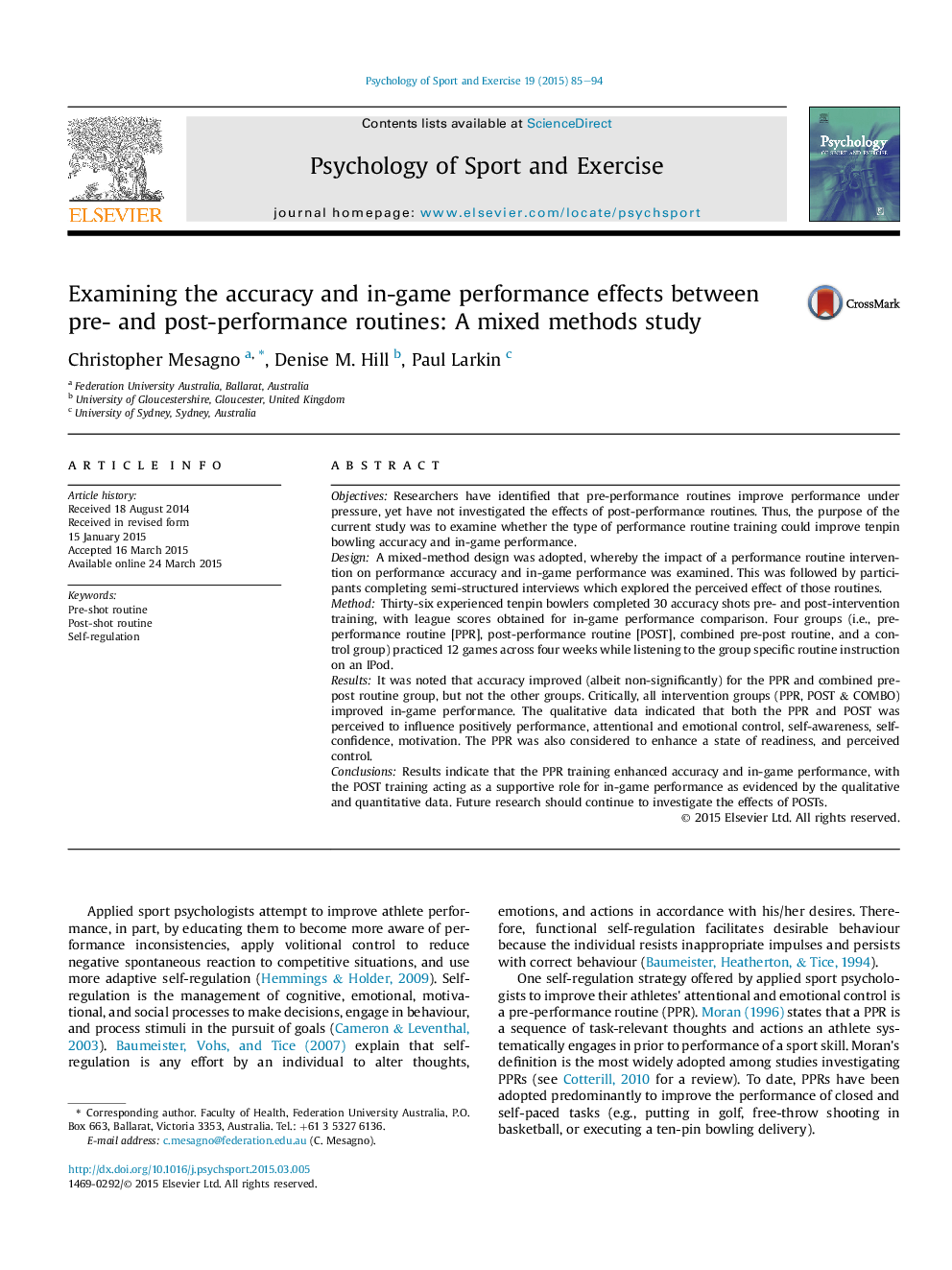| Article ID | Journal | Published Year | Pages | File Type |
|---|---|---|---|---|
| 894278 | Psychology of Sport and Exercise | 2015 | 10 Pages |
•Pre-performance routines improve accuracy from pre-to post-intervention training.•All training groups improved in-game performance from pre- and post-intervention.•All training groups maintained performance levels at a follow-up intervention.•Qualitative themes were similar for the pre- and post-performance routine groups.•Readiness and control were also themes for the pre-performance routine groups.
ObjectivesResearchers have identified that pre-performance routines improve performance under pressure, yet have not investigated the effects of post-performance routines. Thus, the purpose of the current study was to examine whether the type of performance routine training could improve tenpin bowling accuracy and in-game performance.DesignA mixed-method design was adopted, whereby the impact of a performance routine intervention on performance accuracy and in-game performance was examined. This was followed by participants completing semi-structured interviews which explored the perceived effect of those routines.MethodThirty-six experienced tenpin bowlers completed 30 accuracy shots pre- and post-intervention training, with league scores obtained for in-game performance comparison. Four groups (i.e., pre-performance routine [PPR], post-performance routine [POST], combined pre-post routine, and a control group) practiced 12 games across four weeks while listening to the group specific routine instruction on an IPod.ResultsIt was noted that accuracy improved (albeit non-significantly) for the PPR and combined pre-post routine group, but not the other groups. Critically, all intervention groups (PPR, POST & COMBO) improved in-game performance. The qualitative data indicated that both the PPR and POST was perceived to influence positively performance, attentional and emotional control, self-awareness, self-confidence, motivation. The PPR was also considered to enhance a state of readiness, and perceived control.ConclusionsResults indicate that the PPR training enhanced accuracy and in-game performance, with the POST training acting as a supportive role for in-game performance as evidenced by the qualitative and quantitative data. Future research should continue to investigate the effects of POSTs.
